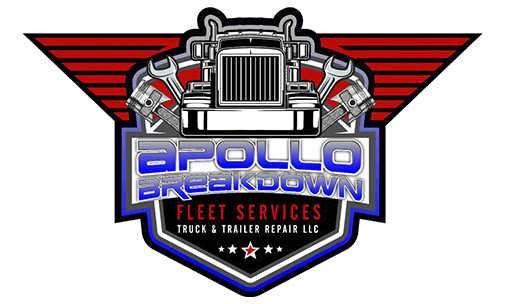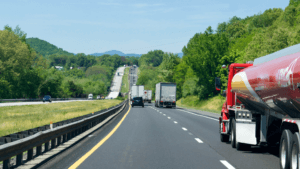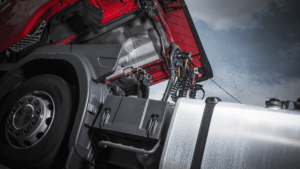Embarking on a road trip in an RV offers a unique blend of adventure and freedom, allowing travelers to explore diverse landscapes and destinations at their own pace. However, like any vehicle, RVs are not immune to mechanical issues and maintenance challenges. For truck owners venturing into the world of RV travel, understanding common problems and how to address them is crucial for ensuring a smooth journey. This guide aims to provide a comprehensive look at frequent RV troubles and practical solutions, equipping road warriors with the knowledge to keep their travels on track.
Engine Troubleshooting
Engine issues can turn an exciting journey into a frustrating ordeal. Common problems include overheating, stalling, and difficulty starting. First, ensure your coolant levels are adequate to prevent overheating, especially during long drives or in hot climates. Regularly inspect the radiator and hoses for leaks or damage.
If the engine struggles to start, check the battery connections for corrosion and ensure the battery is fully charged. Stalling can often be traced back to fuel system issues; replace the fuel filter and ensure the fuel pump is functioning properly.
For persistent problems, a diagnostic tool can help identify error codes, guiding you to the specific issue. Regular maintenance, such as oil changes and air filter replacements, can also prevent many engine problems. By staying vigilant and addressing minor issues promptly, you can avoid major disruptions on the road.
Our team is ready 24/7 to assist you, contact us here!
Electrical System Problems
Electrical issues in an RV can be particularly daunting due to the complexity of the system. Common problems include blown fuses, dead batteries, and malfunctioning appliances. Begin by checking the fuse box for any blown fuses and replace them with the correct amperage.
If your RV’s battery keeps dying, inspect the connections for corrosion and ensure the alternator is charging properly. Using a multimeter can help diagnose issues with voltage drops or faulty wiring. Malfunctioning appliances often indicate a problem with the circuit they are connected to; ensure all connections are secure and check for tripped breakers.
Additionally, make sure your RV is properly grounded to avoid electrical shorts. Regularly test all systems before hitting the road to catch potential issues early. By systematically troubleshooting and maintaining your RV’s electrical system, you can prevent many common problems and ensure a reliable power supply throughout your journey.
We recommend you to see this article: COMMON RV PLUMBING PROBLEMS AND HOW TO FIX THEM
Plumbing and Water Issues
Plumbing problems in an RV can quickly dampen the adventure. Common issues include leaks, clogged drains, and faulty water pumps. Start by checking for leaks in hoses and connections, particularly around sinks, toilets, and the water heater. Tighten any loose connections and replace damaged hoses.
For clogged drains, a mixture of baking soda and vinegar can often clear minor blockages; for more severe clogs, a plumbing snake may be necessary. If the water pump is not working, ensure it has power and check for blown fuses or tripped breakers. Sometimes, the pump’s pressure switch may need adjustment.
Additionally, regularly sanitize your water system to prevent bacterial growth and ensure water quality. Inspect and replace water filters as needed to keep the system running smoothly. By staying proactive with maintenance, you can avoid most common plumbing issues and enjoy a hassle-free water supply during your travels.
Do you want to restore the performance of your vehicle? We can help you, contact us now!
HVAC System Challenges
HVAC issues in an RV can make your journey uncomfortable, particularly in extreme weather conditions. Common problems include inadequate cooling or heating, unusual noises, and weak airflow. First, check the air filters and replace them if they are dirty or clogged, as restricted airflow can hamper the system’s efficiency.
Inspect the vents for obstructions and ensure they are open and unobstructed. If the system is not cooling or heating effectively, verify that the thermostat is functioning correctly and set to the desired temperature. Unusual noises often indicate a problem with the fan or compressor; listen for any changes in sound and investigate accordingly.
Regularly clean the condenser coils to ensure optimal performance and prevent overheating. For persistent issues, consider consulting a professional HVAC technician. By maintaining your HVAC system and addressing problems promptly, you can ensure a comfortable environment inside your RV, regardless of the weather outside.
We recommend you to see this article: EMERGENCY ROADSIDE ASSISTANCE FOR RV OWNERS: WHAT TO EXPECT
Structural and Exterior Concerns
Structural and exterior issues can compromise the safety and appearance of your RV. Common concerns include roof leaks, delamination, and exterior damage. Begin by inspecting the roof for any cracks, punctures, or worn seals, particularly around vents and skylights. Apply sealant to any suspect areas to prevent water intrusion.
Delamination, where the exterior fiberglass separates from the underlying material, often indicates water damage; addressing leaks promptly can prevent this issue. Examine the RV’s exterior for dents, scratches, or other damage that could expose underlying materials to the elements.
Regularly wash and wax the exterior to protect against UV damage and maintain the RV’s appearance. Check the seals around windows and doors for wear and replace them if necessary. By staying vigilant about structural and exterior maintenance, you can preserve the integrity and longevity of your RV, ensuring it remains roadworthy and visually appealing.
¿Looking for professional help? Our team is 100% trained to help you and solve any problem, visit our website now!
Tires and Suspension Issues
Tires and suspension systems are critical for the safe operation of your RV. Common tire problems include uneven wear, blowouts, and underinflation. Regularly inspect your tires for signs of wear and tear, and ensure they are inflated to the manufacturer’s recommended pressure.
Uneven wear can indicate an alignment issue or a problem with the suspension system; addressing these issues promptly can prevent more serious damage. Blowouts are particularly dangerous and can often be prevented by adhering to regular tire maintenance. Replace old or damaged tires and avoid overloading your RV, as excessive weight can contribute to tire failure.
Additionally, check the suspension system for worn or damaged components such as shocks, struts, and springs, as these can affect your RV’s handling and stability. By maintaining your tires and suspension system, you can enhance the safety and comfort of your journey.
We recommend you to see this article: SEMI-TRUCK AIR CONDITIONING REPAIR: STAYING COOL ON THE ROAD
Slide-Out Mechanism Failures
Slide-out mechanisms add valuable space to your RV, but they can also present unique challenges. Common issues include difficulty extending or retracting the slide-out, leaks, and mechanical failures. First, ensure the slide-out tracks are clean and free of debris, as obstructions can hinder operation. Lubricate moving parts to reduce friction and wear.
If the slide-out is not operating correctly, check the motor and electrical connections for any signs of malfunction or damage. Leaks around the slide-out seals can lead to water damage; inspect the seals regularly and replace them if they show signs of wear or deterioration. Ensure the slide-out is properly aligned to prevent uneven wear and potential damage to the mechanism.
By performing routine maintenance and addressing issues as they arise, you can keep your slide-out mechanisms functioning smoothly and enjoy the extra space they provide during your travels.
Call us for truck repair road service here. We are in Florida, Texas and Georgia. Open 24/7.






